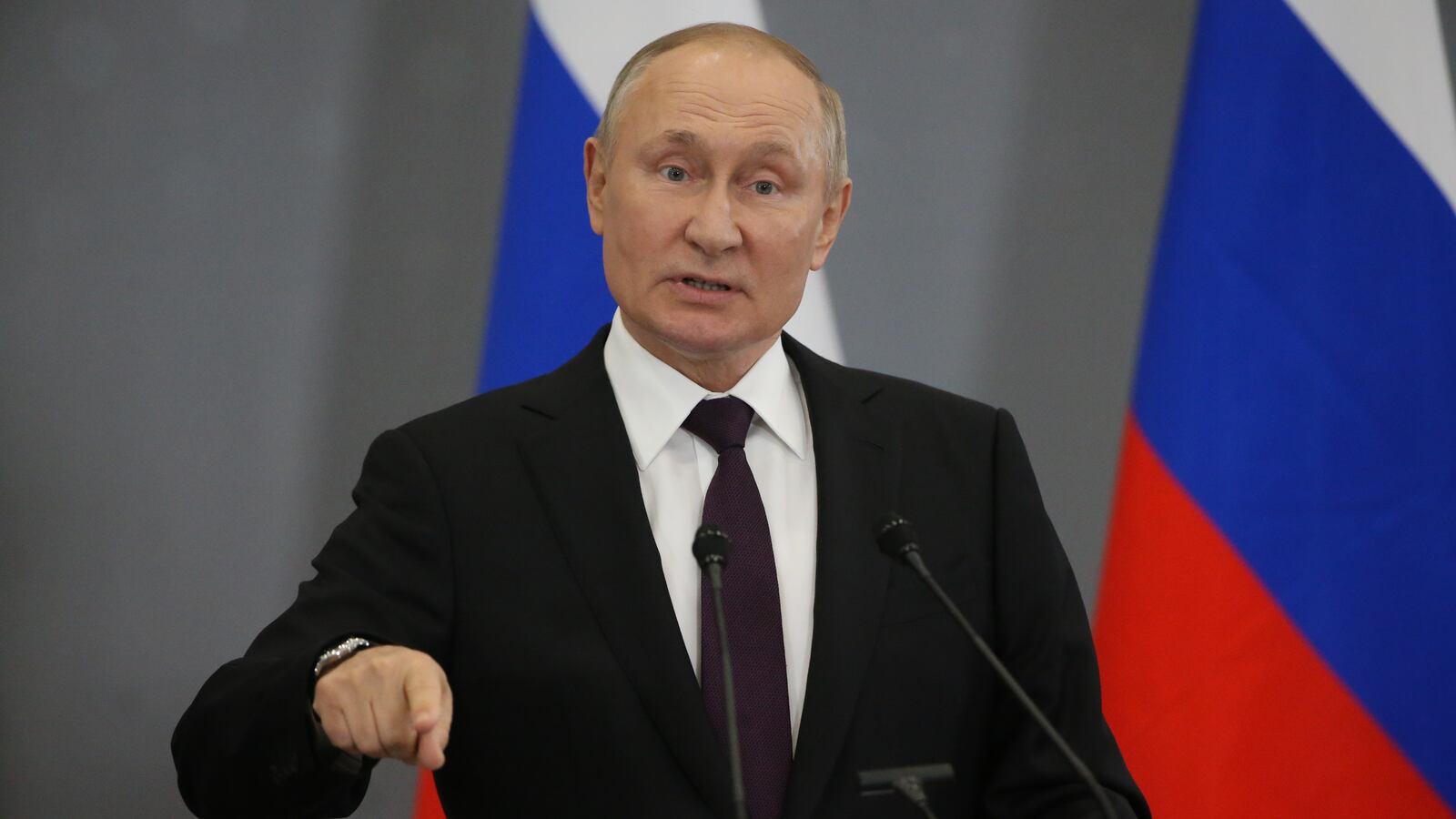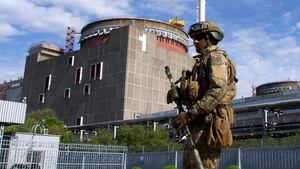Russian President Vladimir Putin has plans to launch a full-scale offensive next year in Ukraine, which would mark a significant escalation from the “partial mobilization” Moscow initiated last month, according to Meduza, which cites “multiple” sources close to the Kremlin.
To stall before launching a fuller onslaught, Putin is working to drum up peace talks with Ukraine again, potentially through engaging in a ceasefire, Meduza reports. During that time, the Russian president reportedly hopes to have his troops trained up and prepared for fighting in Ukraine.
His alleged designs, though, don’t align with reality. Ukrainian leadership has indicated for months now that Ukraine will not engage in peace talks while Moscow continues to wage war inside Ukraine. After Russia claimed parts of Ukrainian territory as its own last month—a move which world leaders have denounced as illegal—Ukrainian President Volodymyr Zelensky said that negotiating with Putin would be “impossible.”
It’s not clear how Putin plans to make the Ukrainians budge on that point. The Kremlin indicated earlier this week that it expected Turkish President Recep Tayyip Erdogan to propose that Turkey hold peace talks for Ukraine and Russia, which would be a reprisal of an earlier role Turkey took on in the early days of the war. Turkey hosted peace talks in March, just days after Russian forces invaded Ukraine.
But Erdogan and Putin did not discuss Ukraine, let alone any peace negotiations, during their meeting Thursday in Kazakhstan, RFERL reported.
Russian officials have also been waging a behind-the-scenes campaign with western officials, trying to convince them to urge Kyiv to come to the negotiating table, according to Meduza.
As of Friday, the Biden Administration has seen no signs that Putin is prepared to engage in good faith negotiations, though, a State Department Spokesperson told The Daily Beast.
“No one wants this war to be over more than Ukraine, and the United States will certainly not be the one to delay negotiations,” the spokesperson said. “If President Putin truly wanted a peace deal or a ceasefire, he would stop the bombs and missiles. He would fully withdraw his troops from Ukraine.”
The news of Putin’s grander plans comes after Putin ordered a partial mobilization of 300,000 Russian men last month to try to account for losses on the battlefield. The partial mobilization has been wildly unpopular in Russia, prompting hundreds of thousands of Russian men potentially eligible for conscription to flee Russia. Some have even fled to the United States and have begun to seek asylum.
Others, who have been swept up in the mobilization, have, in some cases, received minimal training for the war.
Russia has already mobilized 222,000 people out of the 300,000 called up for service in the partial mobilization, Putin said Friday; 16,000 are already fulfilling combat tasks. The rest will be called up in the next two weeks, according to the president.
But Putin appears to be trying to ease tensions domestically. “Nothing additional is being planned,” Putin said Friday of the mobilization.
Following a series of missile launches targeting Kyiv and other major metropolitan centers in Ukraine earlier this week, Putin added Friday that he sees no need for more “massive” strikes right now.
The Russian president warned western leaders to refrain from deploying troops in Ukraine and fighting with Russia directly.
“The deployment of any troops for a direct clash with the Russian army is a very dangerous step that could lead to a global catastrophe. I hope that those who are talking about it will have enough sense to refrain from such steps,” Putin said, according to TASS.
Putin appeared to be responding to commentary from NATO Secretary General Jens Stoltenberg about the war, apparently having interpreted his statements as a suggestion that NATO was sending troops, or considering sending troops to Ukraine—rather than a symbolic warning that if Russia wins against Ukraine, NATO will be at risk of further aggression.
If Russia wins, “that is not only a big defeat for Ukrainians, but it will be a defeat and dangerous for all of us, because it will make the world more dangerous and it will make us more vulnerable for further Russian aggression,” Stoltenberg said.
Stoltenberg reasserted Thursday that NATO is not a party to the conflict, “but we will continue to support Ukraine, for as long as it takes,” he added.
The Biden administration has been waging its own behind-the-scenes campaign to convince world leaders to avoid supporting Russia in its war against Ukraine. Biden has been making phone calls to other world leaders to lobby them, with a particular eye on countries that have stayed out of the fight, in Latin America, Asia, and Africa, The Washington Post reported.






